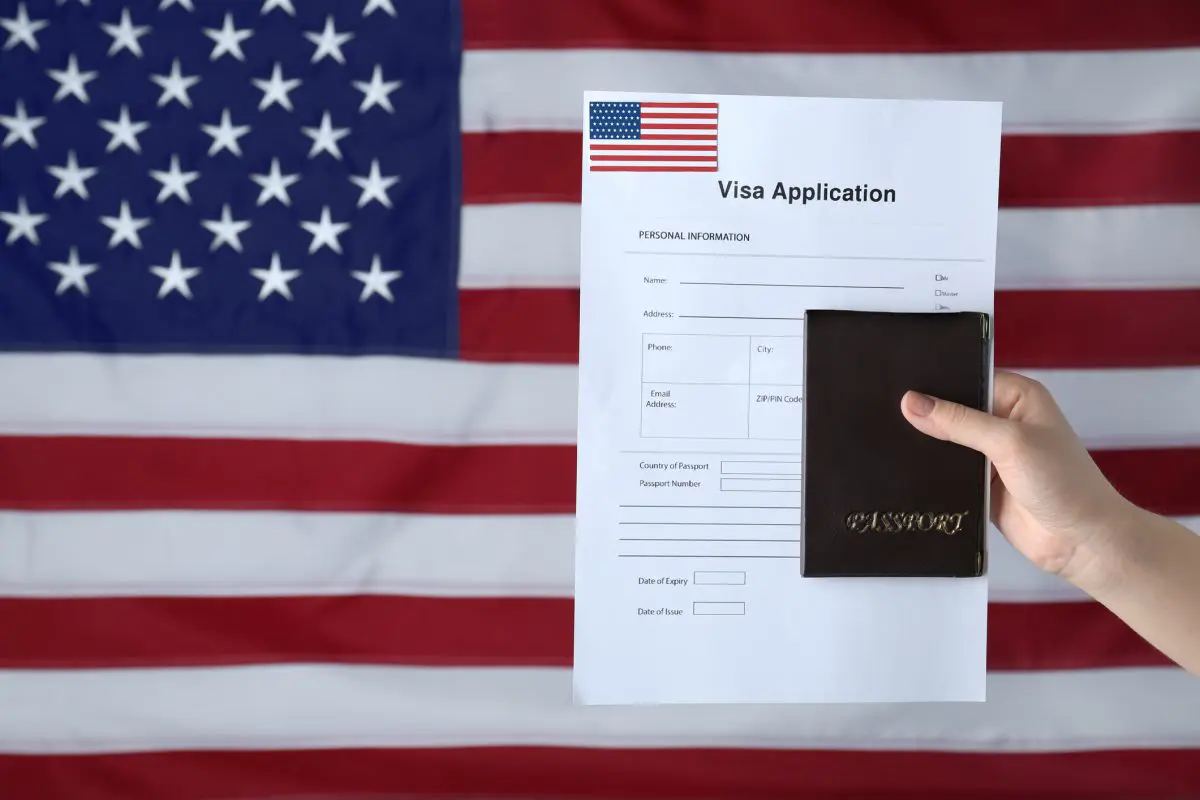Us Immigrant Visas
National Interest Waiver; Everything You Should Know in Simple Words
December 22, 2024
7 min read
Discover the essentials of family-based immigration to the USA, visa types, and application steps, with Tuan Le Law Office in OC, CA.

"Home is where the heart is" and for many, the heart lies with family. Since 1965, family connections have been the bedrock of U.S. immigration, allowing citizens and permanent residents to sponsor relatives for a new life on American soil. At Tuan Le Law Office in Orange, CA, we understand that family is the foundation of life. As a U.S. citizen or lawful permanent resident, you have the opportunity to petition for your family members to join you in the USA. Family-based immigration visas. In this article, we explore the intricacies of Family-based immigration, a major avenue for legal entry into the U.S. that underscores the nations commitment to family unity. It outlines the necessary qualifications, procedural steps, and various visa types, underscoring the need for expert legal advice to smoothly traverse this multifaceted process and ensure family reunification. Are you ready to reunite with your family in the United States? The dedicated lawyer at Tuan Le Law Office is here to guide you through the family immigration visa process. With our expertise, well ensure that your loved ones can join you in the U.S. legally and with ease. ContactTuan Le Law Office today.
Family-based immigration stands as the most prevalent form of legal entry into the United States, representing the essence of the nations immigration policy. It is a process that enables U.S. citizens and lawful permanent residents (LPRs) to sponsor their relatives, affirming the country's dedication to family unity and the well-being of immigrants. This system not only supports the emotional and financial stability of families but also enriches the social and cultural mosaic of American society.
It represents a major share, accounting for two-thirds of all immigration to the U.S. This underscores It's role as a key element in preserving connections across borders. The system enables immediate family members and those within the preference category to secure a green card. It offers a lawful path for relatives to reside, work, and pursue education in the U.S. This, in turn, facilitates the journey towards permanent residency and citizenship.

Here are the key principles and eligibility criteria that form the foundation of this system:
Family-based immigration categories are divided into two main groups:Immediate Relative Immigrant VisasandFamily Preference Immigrant Visas. Here is a breakdown of each:
There are quotas and waiting periods for family preference visas, dictated by the Visa Bulletin for family-sponsored categories. These quotas can result in significant waiting times, making the consular processing for family-based visas a lengthy endeavor.
The journey to the United States begins with a comprehensive application process. This process is designed to meet the requirements and ensure that all family-sponsored visas are granted in accordance with U.S. immigration laws. In the following part, we will detail the different steps of the application process:
To initiate the petition, the U.S. citizen or lawful permanent resident sponsor must file Form I-130, Petition for Alien Relative. This form is the first step in filing family-based petitions and is crucial for both immediate relatives immigration and family preference categories.
The required documentation includes proof of the sponsors U.S. citizenship or LPR status, evidence of the qualifying family relationship, and an affidavit of support for this kind of immigration. Specifically, for spouse visa requirements, marriage certificates and other relevant documents are necessary.
Processing times and fees vary depending on the visa category and the USCIS workload. Priority dates in this kind of immigration play a significant role in determining the wait times, especially for family preference categories, which are outlined in the monthly Visa Bulletin for family-sponsored categories.
The sponsorship and petition process involve the sponsor agreeing to financially support the family member, which is documented through the affidavit of support. This is a key component in obtaining a green card through family sponsorship.
When filing family-based petitions, It's essential to follow the parent visa process, child immigration options, or sibling immigration process accurately. Each category has specific requirements, such as the fiancé visa process or immigration options for married couples. And,Consular processing for family-based visas is the final step for relatives outside the United States, while those already in the U.S. may adjust their status to obtain a conditional green card for spouses or proceed with the marriage-based immigration process. In summary, the application process for bringing parents to the United States or other family members is meticulous and requires careful attention to details to ensure a successful family reunification immigration experience. For personalized guidance and support through each stage of the application, consider reaching out to our legal expert who can help you navigate the complexities of the immigration. Start your application now and pave the way for your family s future. Call us today at 714-877-5840 or fill out the form to schedule your appointment
Once an applicant meets the necessary criteria and receives visa approval, they must then settle the immigrant visa fee. Subsequently, they complete the consular processing if they are abroad. For applicants already in the U.S., they proceed by adjusting their status to that of a permanent resident. The Visa Bulletin offers priority dates for these categories, indicating when an applicant may secure a visa number.
Adjusting status to become a lawful permanent resident in the United States is a pivotal step in Family-based immigration. This process is available to individuals who are already in the U.S. and have an approved family-sponsored visa. The filing of family-based petitions is the initial step, followed by submitting an application to adjust status. And as we mentioned, the affidavit of support for Family-based immigration is a crucial document that ensures the immigrant will not become a public charge.
Conditional green card for spouses is granted to couples whose marriage is less than two years old at the time of approval. This status requires the couple to apply for the removal of conditions on their residency within 90 days before the second anniversary of the grant of conditional residency. The marriage-based immigration process includes proving the legitimacy of the marriage and meeting the spouse visa requirements.
Legal guidance is invaluable in the realm of Family-based immigration. An experienced immigration attorney can provide clarity on family-sponsored visas and assist with the marriage-based immigration process. They can also help navigate the complexities of obtaining a conditional green card for spouses and advise on the best immigration options for married couples. For those bringing parents to the United States or going through the fiancé visa process, professional legal advice can be the key to a successful application.
Navigating the Family-based immigration landscape can be fraught with challenges. Applicants often face long waiting periods due to priority dates in Family-based immigration, which can delay the family reunification immigration process. The complexity of filing family-based petitions and meeting all Family-based immigration requirements can also be daunting. Moreover, the affidavit of support for Family-based immigration imposes financial responsibilities that sponsors must be prepared to meet.
To overcome these hurdles, It's essential to stay informed about the Visa bulletin for family-sponsored categories and understand the nuances of consular processing for family-based visas. Ensuring that all spouse visa requirements and parent visa process steps are meticulously followed can help avoid delays. Additionally, exploring all child immigration options and understanding the sibling immigration process can provide alternative pathways to reunification.
A: Family sponsorship offers a pathway to U.S. green cards for immediate relatives, including parents, spouses, siblings, and fiancé. Each relationship type follows a distinct visa process, ultimately leading to permanent residency. Engaged couples have a specific fiancé visa that allows entry and marriage in the U.S. within 90 days.
A: When applying for family-based immigration, It's crucial to understand the detailed requirements beyond the basics. This includes preparing the affidavit of support, a legal document ensuring the immigrant won't rely on public funds. Additionally, properly filing family-based petitions is essential, as it kick-starts the immigration process for both immediate relatives and those in family preference categories.
A: Priority dates in family-based immigration are essential as they determine your place in the visa queue, especially for family preference categories. The Visa Bulletin is the official source that indicates when you can move forward with your visa application based on your priority date. So, It's a key factor in the timing of your immigration process.
A: Consular processing is the method by which applicants outside the U.S. obtain their family-based visas. It involves several steps after the family-based petition is filed and the priority date is current, including undergoing medical examinations, attending interviews, and submitting required documents to the U.S. consulate or embassy in the applicants home country.
A successful Family-based immigration application requires careful attention to detail and adherence to all Family-based immigration requirements. It's crucial to stay updated with the Visa bulletin for family-sponsored categories, ensure all documentation is accurate and complete, and meet all affidavits of support obligations. Seeking professional guidance can significantly enhance the prospects of a favorable outcome. For those seeking expert assistance,Tuan Le Law Office in OC, CA,is known for providing comprehensive legal services in Family-based immigration matters. Their expertise can guide you through the complexities of the process, from filing family-based petitions to navigating the consular processing stages, ensuring that you have the best possible support on your journey to family reunification in the United States.
Related Articles

December 22, 2024
7 min read

August 30, 2024
9 min read
.webp&w=3840&q=75)
June 27, 2024
9 min read
Need guidance from an experienced immigration attorney?
Mr. Le has granted you a 30-minute consultation session.